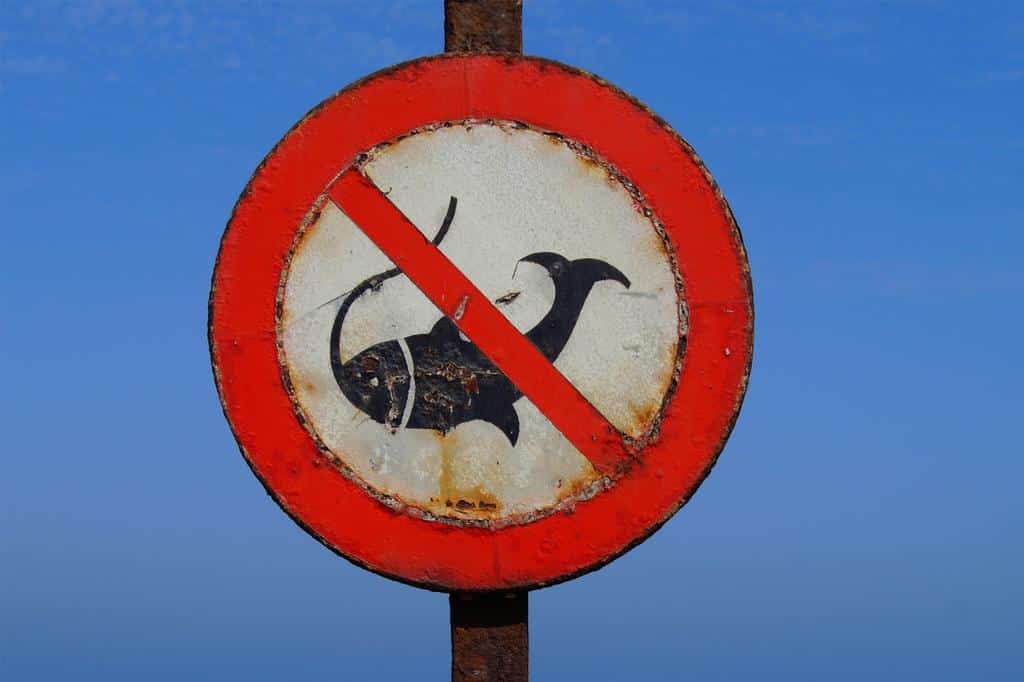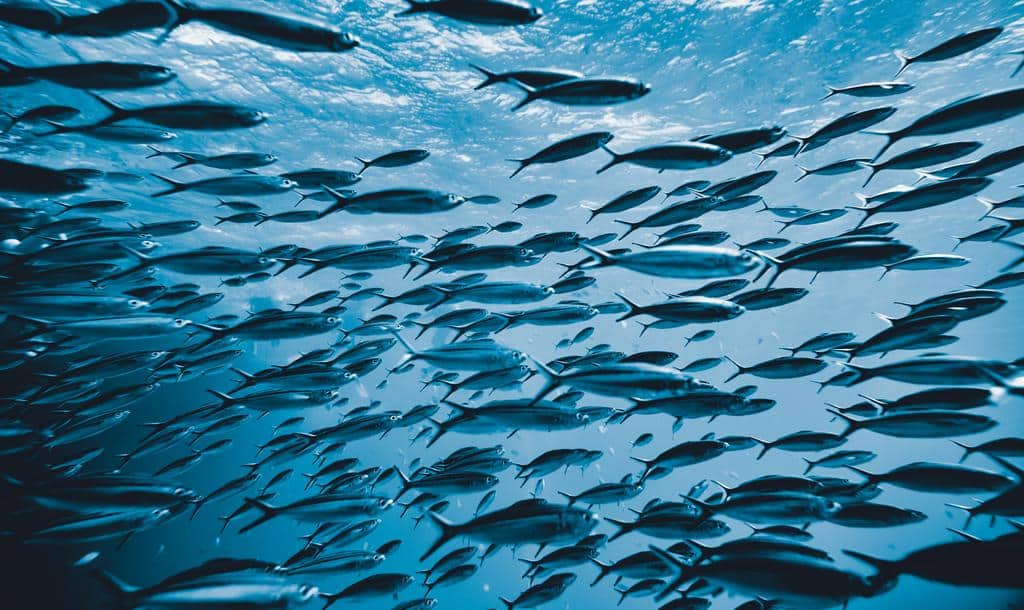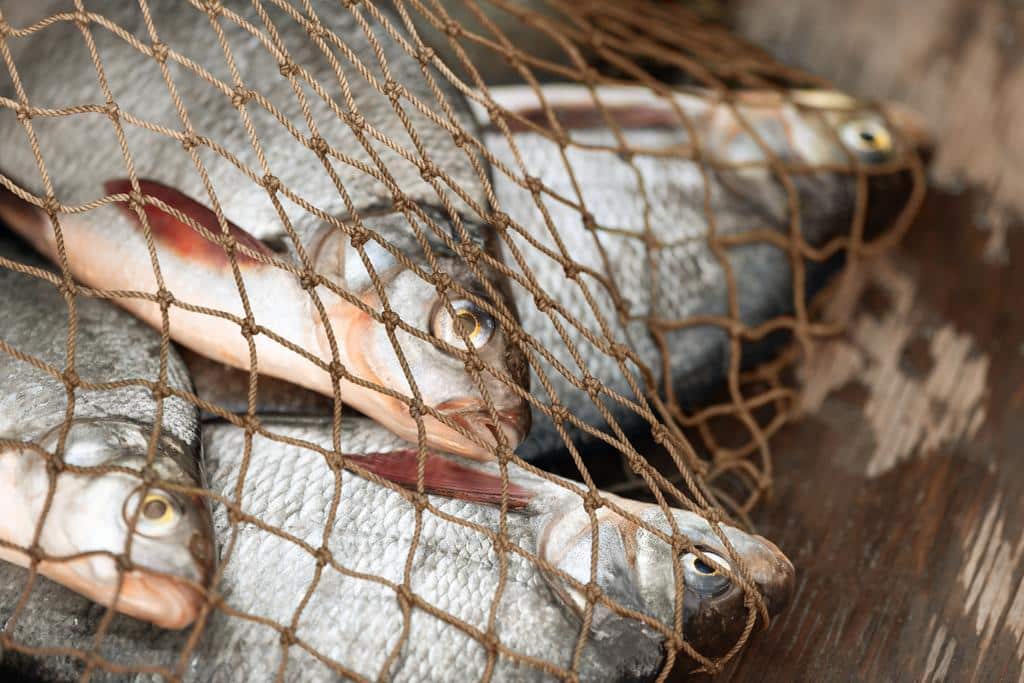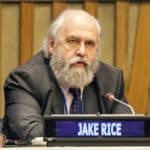Ending harmful fishing practices is a complex problem, combining social, economic, political, and geographical aspects – made more difficult by fish stocks and environmental factors which are indifferent to man-made rules and borders. Inter-governmental and national fisheries management, conservationists and industry understand this, but have not always worked well together as they each try to respond to the demands of the global seafood trade, valued at US$ 153 billion each year.

A ‘no fishing’ sign. Photo credit: Jarretera, iStock Photo.
During my 45 year career working in sustainability science, I was a lead author on Intergovernmental Panel on Climate Change (IPCC) Assessments and was part of the Group of Experts for the first World Ocean Assessment. But amongst the initiatives that I have contributed to, the Intergovernmental Science-Policy Platform on Biodiversity and Ecosystem Services (IPBES) stands out in confronting the complex interface between ensuring biodiversity is not depleted while human well-being continues to benefit from nature.
Through my work with IPBES on improving conservation and sustainable use of the ocean I came to the conclusion that eco-certification is one of the strongest tools available to counter illegal, unreported and unregulated (IUU) fishing – thinking of the Marine Stewardship Council (MSC) in particular.

A woman compares two bags of frozen food in a supermarket. Photo credit: iStock Photo.
Although certification schemes that enable consumers and retailers to exert market forces to support sustainable fisheries cannot solve the problem alone, rigorous programs like the MSC play a significant, often underappreciated, part in combatting the illegal wildlife trade. Newly published analysis of the role of eco-labels in eliminating harmful fishing shows how the MSC program addresses all three dimensions of illegal, unreported and unregulated fishing.
The main reason this certification is useful is the comprehensive nature of MSC’s sustainability standards. The requirements not only ensure the sustainability of the target species harvested and marketed, but go much further in ensuring that both marine habitat and species which are particularly vulnerable or of importance for ecosystem dynamics are also not exposed to serious harm. It requires effective management, setting high standards for inclusive and participatory governance and decision processes that place demands on intergovernmental Regional Fisheries Management Organizations (RFMOs), with a growing awareness of social standards including preventing forced and child labour.

Wild shoal of fish swimming. Photo credit: stock_colours, iStock photo.
But the reason the program works is the unwavering demand for evidence and data. The ocean is large and thorough monitoring by jurisdictional authorities is difficult and expensive, creating large potential for the two “U’s” in IUU – unreported and unregulated fishing. The MSC certification puts the burden of proof on the industry, to provide sufficient evidence that full catches are recorded and reported – not just when they first seek certification, but through annual audits. Moreover, the requirement for evidence applies not just to what’s caught but to the entire fishing operation, including the impact on habitats and the integrity of the supply chain into which the certified harvest is going. Not only must the evidence of compliance be provided to the MSC, but the findings must also be made publicly available. This brings transparency to the operations of certified fisheries, and to the MSC processes themselves, further combatting the concerns about unreported and unregulated fishing.

Four bream caught in a fishing net on a wooden boat. Photo credits: Irina Orlova, iStock Photo.
Transparency is the third reason why the MSC is so relevant to combatting the illegal wildlife trade. It gives concerned consumers a choice in rewarding good practices. Ecolabels are designed to incentivize and publicize good practices in the industry, rather than punish bad practices and drive them further underground (or underwater). Moreover, transparency and promotion of best practices is not restricted to the harvester. The jurisdictional consultation and decision processes are given incentives for inclusiveness, information-sharing, and transparency, as are the participants in the supply chains, and these incentives are present both across and within jurisdictional boundaries.
Perhaps most importantly in moving the dial on fishing, the incentives are progressive and incremental. A fishery does not have to be perfect to receive certification, but sustainable for now with an audited commitment to achieve global best practice over the lifetime of its certificate. Making good fisheries even better hits at the heart of fighting the illegal wildlife trade.
And, from all my experience in fisheries science, it seems to be working. Within a couple of decades the MSC certification process has received sufficient buy-in from the responsible industry, accountable jurisdictions, and concerned consumers that over 500 fisheries comprising nearly a fifth of the total global wild fish catch are certified or currently undergoing assessment, with those numbers increasing. This is compelling evidence that certification is one of our very effective counters to the difficult challenges presented by IUU fishing.
Further information
- For more information on the MSC fisheries and seafood supply chain certification programmes, visit msc.org.
- All assessment reports and annual audits for every MSC-certified fishery are available at track a fishery. You can also find out how to get involved in the assessment of a fishery.
- For more information about how the MSC updates its global best practice requirements for fisheries, see the MSC Standards review and development activities.

